J.K. Rowling: Biography, Harry Potter Writer, Harry Potter Author
British novelist and philanthropist Joanne Rowling, commonly known by her literary name J. K. Rowling, was born on July 31, 1965. She is the author of the fiction series Harry Potter, which was released between 1997 and 2007. She published her debut adult book, The Casual Vacancy, in 2012.
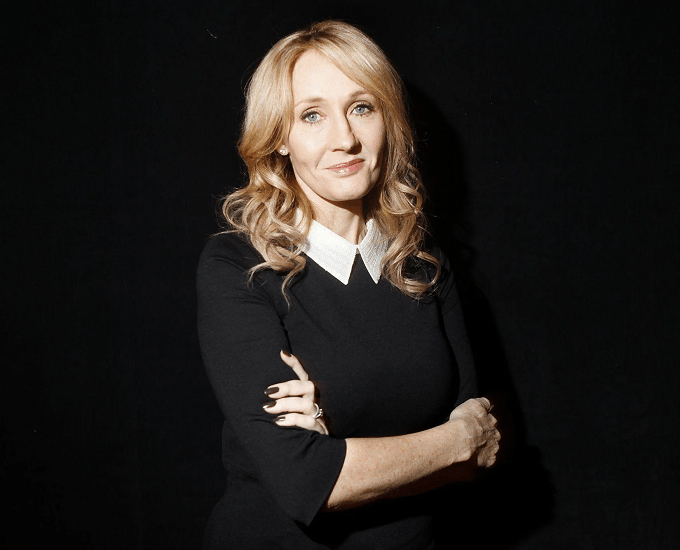
Before her second marriage, she went by Joanne Rowling, or Jo, even though she wrote under the pen name J. K. Rowling. She didn't have a middle name when she was born.
Name
Before her second marriage, she went by Joanne Rowling, or Jo, even though she wrote under the pen name J. K. Rowling. She didn't have a middle name when she was born. For avoiding offending their intended audience of young boys, the executives at Bloomsbury Publishing requested that she write under two initials rather than her full name. Due to the simplicity of pronouncing two successive letters and the influence of her paternal grandparents, she picked K (for Kathleen) as the second beginning of her pen name. She has occasionally gone by Joanne Murray since remarried in 2001 for personal transactions.
Life And Career
Early Life And Family
At the Cottage Hospital in Yate, Gloucestershire, Joanne Rowling was born on July 31, 1965. Pete was with the Royal Navy, while Anne was with the Wrens.
Rowling’s parents, Anne and Peter married when they were both 19 years old, on March 14, 1965. Pete was with the Royal Navy, while Anne was with the Wrens. They left the navy and sought a rural place to raise their unborn child. The Rowlings made their home in Yate, where Pete began working as an assembly-line worker at the Bristol Siddeley factory. He rose through the managerial ranks as a chartered engineer as Rolls-Royce acquired the business. Later, Anne was employed as a scientific technician. Anne and Pete did not go to college.
Sisters Dianne and Joanne are two years apart in age. Joanne's family relocated to Winterbourne, Gloucestershire when she was four. When she was five, she started attending St. Michael's Church of England Primary School in Winterbourne. Joanne had always liked the name Potter, and the Rowlings lived close to a family with that name. Since Anne enjoyed reading, their homes were stocked with books. The animals Scarry created inspired Joanne's first effort at literature, a tale titled "Rabbit," which she wrote when she was six years old.
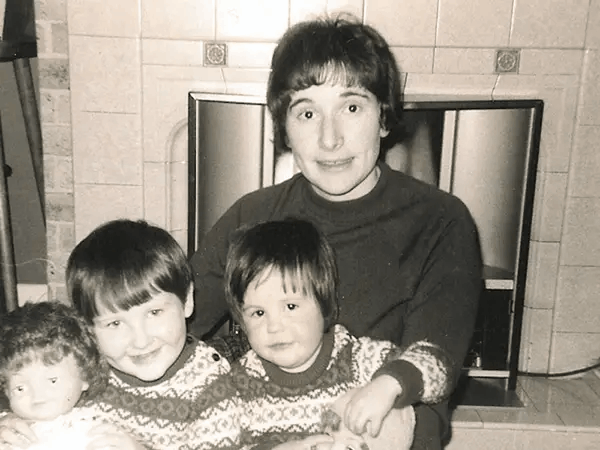
Inspiration And Mother's Death
After graduating from college, Rowling and her friends moved into an apartment in Clapham Junction, where she enrolled in a degree programme to become a multilingual secretary. Amnesty International engaged her to record human rights concerns in French-speaking Africa while working part-time in London. Although she never saw them released, she started writing adult fiction while doing temporary work. She regularly traveled by expensive trains to see her fiance before they moved together to Manchester in 1990. Characters of Harry Potter, Ron Weasley, and Hermione Granger randomly came to her mind while she was waiting for the train from Manchester to London, which was four hours late. Since she didn't have a pen or paper, she started to develop the characters and their plot in her mind fully. She arrived on the train and started to write the story.
Rowling arrived in Manchester sometime in November 1990. She called her year in Manchester, when she had temporary positions at Manchester University and the Chamber of Commerce "a period of suffering." Her mother passed away on December 30, 1990, from multiple sclerosis. She hadn't revealed to her mother that she was working on Harry Potter at the time. The passing of her mother significantly impacted Rowling's work. Later, she claimed that the Mirror of Erised is about her mother's death and pointed out the "obvious parallelism" between her life and Harry's experience of facing mortality.
Relationships And Her Parenthood
Jorge Arantes, a Portuguese television journalist, and Rowling connected in a pub five months after Rowling's arrival in Porto and discovered that they both had a passion for Jane Austen. When she had a miscarriage in 1992, they were preparing to travel to London to meet Rowling's relatives. Even though they married on October 16, 1992, their bond was in problem. On July 27, 1993, in Portugal, they welcomed a daughter, Jessica Isabel Rowling Arantes, who was given the name Jessica Mitford.
While she was married, Rowling endured domestic violence. In June 2020, Arantes admitted to slapping her and expressed no guilt. The union was "brief and terrible," according to Rowling. Rowling and Arantes split up on November 17, 1993, when Arantes kicked her out of the house. Rowling went back with the police officers to get Jessica, then concealed herself for two weeks before leaving Portugal. Late in 1993, Rowling travelled to Edinburgh, Scotland, with her daughter and a manuscript of Harry Potter in her bag, intending to stay with her sister there until Christmas.
Rowling's choice to live with her sister instead of her father is questioned by her biographer, Sean Smith.
In an interview Rowling discussed about her relation with her father and he said, "It wasn't a nice relationship from my frame of perspective for a very long time, but I had the desire to please, and I kept it continuing for a very extended time, and then there simply came a moment at which I had to stand up and say I can't do this longer." Within two years after Anne's passing, Pete engaged his secretary, and according to The Scotsman's 2003 article, "the quickness of his choice to go in with his secretary... upset both sisters and a fault-line now divided them from their father," Pete's choice to join in with his secretary "disturbed both sisters." They hadn't communicated in nine years, according to Rowling's admission in 2012.
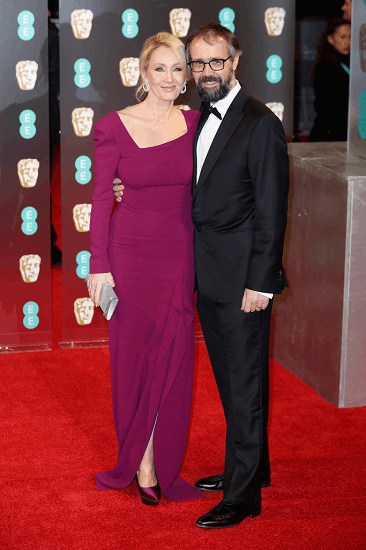
Rowling requested aid from the government and received £69 (US$103.50) each week from Social Security; to relieve her sister, who had just gotten married, of financial responsibility, she relocated to an apartment that she regarded as being mouse-ridden. As desperately poor, she subsequently overcame with her financial issues. She thought she had failed seven years after earning her university degree. According to Tison Pugh, she experienced "severe suffering" due to the "grinding impacts of poverty, along with her anxiety for caring for her child as a single mother." She was divorced, out of a job, and responsible for a young kid, but she said that this "liberated" her from concentrating on writing. Jessica "kept me going," as she phrased it. She moved into an apartment in Leith, where she completed Philosopher's Stone thanks to a $900 loan from her former school buddy Sean Harris.
In March 1994, Arantes travelled to Scotland for Jessica and Rowling. On March 15, 1994, Rowling filed a motion for an action of injunction (order of restraint). The activity was successful, and Arantes went back to Portugal. At the beginning of the year, Rowling started to suffer from severe depression and thought about committing suicide. She then needed medical attention. Her mental state progressively got better after nine months of counselling. She started the divorce process on August 10, 1994, and it was finalised on June 26, 1995.
Before engaging in a teacher training programme, Rowling intended to complete her book out of concern that she wouldn't be able to do it after beginning the programme. She frequently wrote at coffee shops, such as Nicolson's, co-owned by her brother-in-law. She made $22.50 weekly from secretarial work but would stop receiving government assistance if she made more. She received money from a friend in the middle of 1995, helping her to stop receiving aid and pursue higher education full-time. In August 1995, Rowling enrolled in a teacher preparation programme at Moray House School of Education after finishing her first book. She began working at Leith Academy in July 1996 after receiving her teaching credential. Later, Rowling said that she had rescued her own life by penning the first Harry Potter novel and that it addressed her worries about "love, grief, divorce, and death."
Publishing Harry Potter
In June 1995, Rowling finished writing Harry Potter and the Philosopher's Stone. In the earlier manuscript, there was a drawing of Harry near a fireplace with a scar on his forehead like lightning. The Christopher Little Literary Agency decided to promote Rowling after receiving a positive assessment from an early reader. Twelve publishers received her work, but they all declined to publish it. After Nigel Newton, the then-head of Bloomsbury Publishing, watched his eight-year-old daughter complete one chapter and express a desire to continue reading, Barry Cunningham, who oversaw the children's fiction division, purchased it. You won't ever earn any money out of kid's novels. Jo Cunningham reportedly told Rowling. Before the release of The Philosopher's Stone and to help her with the book Chamber of Secrets, Rowling received a writer's grant from the Scottish Arts Council to cover her childcare expenses and financial needs. Philosopher's Stone was released on June 26, 1997, by Bloomsbury, with a 500-copy original print run. Rowling had collected $4,200 in royalties before the release of The Chamber of Secrets.
Harry Potter makes his debut in The Philosopher's Stone. Harry, a magician, stays with his non-magical family until he turns eleven when he is granted permission to enrol in a school of witchcraft and wizardry. Six follow-up books by Rowling chronicle Harry's experiences at Hogwarts alongside pals Hermione Granger and Ron Weasley, as well as his efforts to thwart Lord Voldemort, who murdered Harry's family when Harry was a little kid. Harry stops Voldemort's attempt to get the essence of immortality in The Philosopher's Stone, and in the last book, The Deathly Hallows, he executes Voldemort.
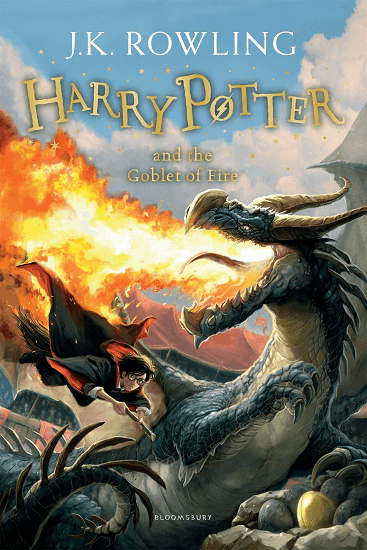
The Bologna Children's Book Fair was where Rowling learned that the US rights were being sold for a price. She was shocked and delighted when Scholastic Corporation paid $105,000 for the rights. Rowling's proceeds from the sale were used to purchase an apartment in Edinburgh. The title change was advocated for by Arthur A. Levine, head of the imprint at Scholastic. He demanded Harry Potter and the School of Magic, and Rowling proposed Harry Potter and the Sorcerer's Stone as a workable alternative. In September 1998, Sorcerer's Stone was made available in the US. The comments it eventually received were mostly favourable, even though they were few. By December, Sorcerer's Stone had become a Critical And Commercial success.
Films
For a rumoured $1 million, Warner Bros. acquired the movie rights to the first two Harry Potter books in 1999. Under the condition that the company could only make Harry Potter movies focused on her stories, Rowling agreed to the deal. She also kept some authority over merchandise and the right to final screenplay supervision. In November 2001, a film version of the first Harry Potter novel, Harry Potter and the Philosopher's Stone, was made available. Harry Potter and the Deathly Hallows, the final instalment in the movie series, was converted into two parts, the first of which was launched on November 19, 2010, and the second on July 15, 2011.
In 2013, Warner Bros. revealed an extended collaboration with Rowling that included a potential film series centred on her fictional author Newt Scamander from the book Fantastic Beasts and Where to Find Them. The first movie was released in November 2016 and is a prequel to the Harry Potter series. The film's script was written by Rowling and published as a book. In November 2018, the book The Crimes of Grindelwald was published. In April 2022, the book The Secrets of Dumbledore was published.
Religion, Wealth And Remarriage
By 1998, media outlets portrayed Rowling as a "penniless divorcee winning the jackpot." In his biography of Diana, Sean Smith claims that the attention served as innovative advertising for Harry Potter. Still, along with fame and fortune, her rise from welfare dependency to affluence also brought parental concerns about the novels' depictions of gender and the supernatural. Last but not least, according to Smith, these worries "increased rather than harmed her public profile."
Rowling declares herself to be a Christian. Although her church was right down the street from where she grew up, tales of the family's attendance at church vary. Around the time Rowling was working on Harry Potter, Rowling started going to the church where Jessica was christened, a Church of Scotland congregation. She claimed to be a member of the Scottish Episcopal Church in a 2012 conversation. Rowling has said that, despite having moments of uncertainty, Rowling has faith in God and that these experiences influence how Rowling writes. Neither magic nor witchcraft is things she believes in.
The year 2001 saw Rowling marry physician Neil Murray. When this was revealed to the media, the couple decided to postpone their marriage and switch their vacation location to Mauritius instead of the Galapagos, where they had planned to get married that July. Murray and Rowling looked for a more isolated and peaceful place to live and work after the UK Press Complaints Commission decided that the magazine had violated Jessica's personal information when the eight-year-old was featured in a family portrait shot on that trip. In Scotland's Perthshire, Rowling purchased Killiechassie House and its surrounding estate. On December 26, 2001, the pair had a modest, secret marriage there, performed by an Episcopalian priest who had arrived from Edinburgh.
Forbes referred to Rowling as "the first billion-dollar author" in 2004. In a 2005 conversation, Rowling denied having one billion dollars in net worth. According to Forbes, she no longer qualified as a billionaire in 2012 because of her philanthropic contributions and heavy UK taxes. Forbes recognised her as the highest-paid writer in the world in 2008 and again in 2019. She is the best-selling novelist still alive in Britain, with sales that exceed £238 million. Rowling was ranked as the 196th richest person in the UK by the 2021 Sunday Times Rich List, with an estimated net worth of £820 million. As of 2020, she also has a $2 million residence in Edinburgh and a £4.5 million Georgian mansion in Kensington.
Adult Fiction And Robert Galbraith
Rowling accompanied her agency, Neil Blair, to the Blair Partnership in the middle of 2011 after leaving the Christopher Little Literary Agency. He served as her agent for the publication of The Casual Vacancy, which Little, Brown and Company published in September 2012. It was Rowling's first novel since the conclusion of Harry Potter, and her first book focused on adults. Casual Vacancy was marketed as a black comedy and was defined as "rural humour" by critic Ian Parker. It is a modern interpretation of rural British fiction from the 19th century. The BBC and HBO collaborated on the miniseries adaptation.
The Cuckoo's Calling, the supposed debut book by Robert Galbraith, was released by Little, Brown in April 2013. In hardcover, it first sold 1,500 copies. Rowling's representative revealed Galbraith was Rowling's nickname following an inquiry by the journalist Richard Brooks, which was sparked by a conversation on Twitter. Rowling subsequently claimed that she had liked writing under the stage names Robert Galbraith, which she adopted after her idol Robert F. Kennedy, and Ella Galbraith, which she had given herself as a young girl. Sales of Cuckoo's Calling increased as a result of the discovery.
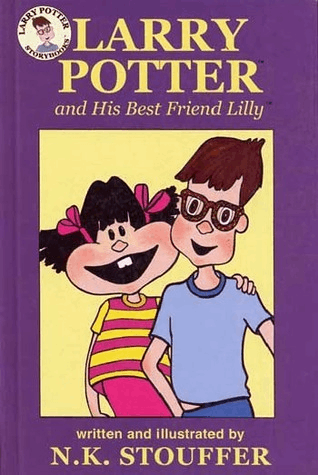
The first episode of the four-season television series Strike, which stars Tom Burke and is based on the Cormoran Strike books, premiered on BBC One in 2017. HBO acquired the rights to the show and will broadcast it in the US and Canada.
Later, Harry Potter works
In 2011, Pottermore, a website providing details and tales about personalities from the Harry Potter universe, was released. When it first came out, Pottermore was based on the Harry Potter books and interactively followed the plot. Rowling's name was attached to it since she presented the website in a video as a collaborative media environment where she and Harry Potter fans would participate. In 2015, Rowling redesigned the website to reflect the Harry Potter encyclopaedia. Beyond encyclopaedic information, Pottermore, after 2015, featured advertisements for Warner Bros. movies like Fantastic Beasts and Where to Find Them.
The West End and Broadway premieres of Harry Potter and the Cursed Child took place in May and July of 2016, respectively. Rowling said she would not produce any further Harry Potter novels during the film's London premiere. Writer Jack Thorne and filmmaker John Tiffany were partners in Rowling's projects. In July 2016, the book adaptation of the script for "Curse of the Golden Flower" was released. The drama centres on Scorpius Malfoy, the son of Draco Malfoy, and Albus Potter, who became friends at Hogwarts.
Children's Stories
After Harry Potter, Rowling's most recent novel to be written for young readers was The Ickabog. A bunch of kids learn the truth about the Ickabog and save the day by discovering that it is a genuine monster. During the UK's COVID-19 shutdown in the middle of 2020, Rowling made The Ickabog free on the internet. To concentrate on other projects, such as Casual Vacancy, she started writing it in 2009 but put it on hold. Children's artwork was chosen in a competition by Scholastic for the print version, released on November 10, 2020, in the US and Canada. Profits were donated to organizations that provided help for COVID-19.
A little kid in The Christmas Pig loses his favorite toy pig, and Christmas Pig helps him find it by leading him through the magical Land of the Lost. After being released on October 12, 2021, the book quickly rose in popularity in the US and UK.
Influences
Rowling has identified Jessica Mitford as her main inspiration. The Little White Horse by Elizabeth Goudge, Manxmouse by Paul Gallico, works by E. Nesbit and Noel Streatfeild, and The Chronicles of Narnia by C. S. Lewis were among the books Rowling read as a young kid. Her "favorite writer of all time," according to Rowling, is Jane Austen.
The children's fantasy is widely acknowledged as having had a significant impact on Harry Potter. Beatrice Groves, a writer, claims that the classics and Harry Potter are "rooted in the Western literary heritage." Commentators also see significant parallels to Enid Blyton and Roald Dahl's children's literature. While rejecting any association with Dahl, Rowling professes love for Lewis, whose literature likewise frequently features conflicts between good and evil.
Le Guin's Earthsea trilogy, in which a school of magic also appears, and the Chrestomanci volumes by Jones are earlier works that extensively include people who train to wield magic. However, this trope does emerge in Harry Potter when Harry receives individualized training from Remus Lupin and other professors. Rowling's "school of witchcraft and wizardry" setup breaks from an even earlier custom of characters being students of magicians, as typified by The Sorcerer's Apprentice. Thomas Hughes' Tom Brown's School Days, published in 1857, is a notable example of a book set in a boarding school and another source of inspiration for Rowling.
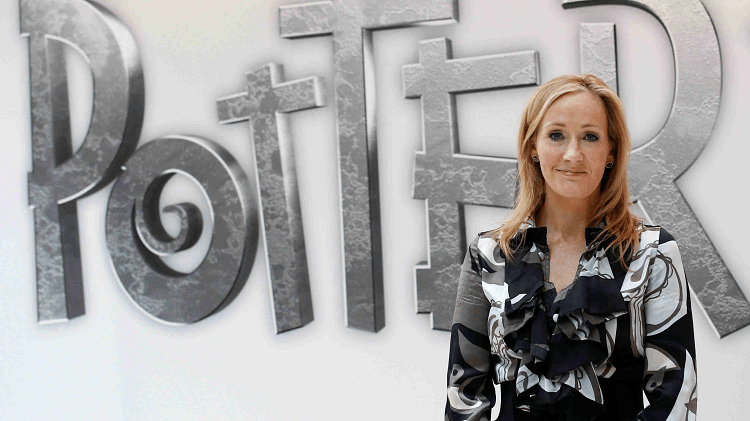
Style And Themes
Style And Allusions
Rowling is most renowned for her work in children's and fantasy fiction. Less criticism has been given to her work in other categories, such as literary fiction and murder mysteries. A fairy tale, a Bildungsroman, and a narrative about boarding school have all been used to describe Rowling's most well-known book, Harry Potter. Pugh has called her previous works hardboiled crime fiction with ancient undertones (The Casual Vacancy) and harsh contemporary literature (Cormoran Strike).
Harry Potter by J.K. Rowling contrasts the exceptional with the ordinary. Its story takes place in two different worlds, the natural and the amazing, but unlike much portal fantasy, her magical aspects are grounded in reality. The protagonists in Rowling's books also have a genuine and emotional mix. They frequently have sounds in their names that reflect their personalities, such as Lupin being a werewolf, Malfoy being tough, and Filch being disagreeable. Roni Natov refers to Harry as "every child" because of his commonplace and accessible characteristics, such as his damaged spectacles. Harry is an everyday person and a storybook hero thanks to these factors, which help to spotlight his heroic moments.
Rowling's literature regularly incorporates fairytale, Christian, and Arthurian themes. Harry's aptitude for pulling the Gryffindor Blade from the Sorting Hat is comparable to the legendary Arthurian sword from the stones. His time living with the Dursleys has been likened to Cinderella. Harry Potter involves Christian themes and metaphors, as does C. S. Lewis's The Chronicles of Narnia. Joy Farmer, a reviewer of children's fiction, sees similarities between Harry and Jesus Christ in the story, which has been seen as a psychomachia-style Christian moral tale in which the forces of the good and evil battle for control of a person's soul. She compares Lewis and Rowling and claims that "magic is both authors' technique of communicating about spiritual truth." In the series' concluding sequences, Harry sacrifices himself, and Voldemort gives an "ecce homo" speech before Harry is revived and defeats his foe, according to Maria Nikolajeva, who claims that powerful Christian imagery is present in these episodes.
Themes
According to Rowling, the main topic in Harry Potter is dead. When Harry stares into the Mirror of Erised in the first book, he experiences happiness and "awful despair" upon realizing what he has always wanted: to see his parents with him, still alive. Harry's protagonist journey is centered on coming to terms with their loss, which takes many forms throughout the books, including his battles with dementors. Harry's life is filled with dead individuals, and in Harry Potter and the Deathly Hallows, he has to deal with his demise. Harry needs to have the maturity to confront death, according to the existential perspective of the series. Death is not binary in Harry's universe; instead, it is malleable, a condition that may be at different levels. Harry's soul is complete and fed by friendship and love, unlike Voldemort, who avoids death by dividing and concealing his soul into seven pieces. The two personalities can be distinguished by their passion. Harry is a protagonist because he cares about other people and is even prepared to die to rescue them, but Voldemort is a villain because he doesn't.
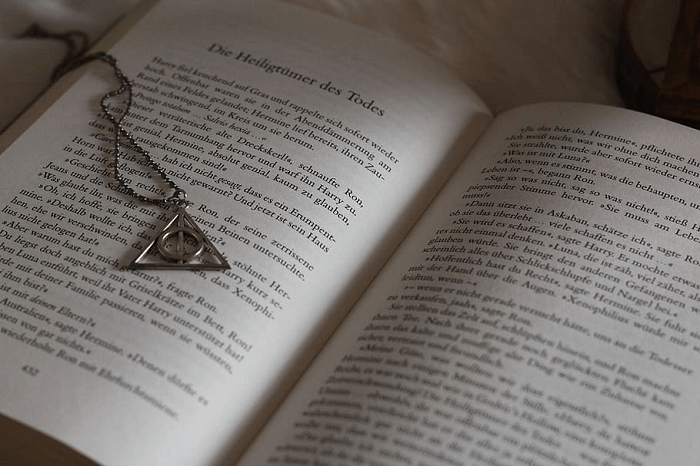
Even though Harry Potter might be seen as a tale of good against evil, its moral distinctions are not inflexible. The characters' first perceptions might be deceiving. In the first book, Harry believes Quirrell is nice because he hates Snape, who seems evil; their viewpoints are the opposite. Then it happens again with Moody and Snape. Second chances and redemption are central themes throughout the book. In Rowling's universe, good and evil are decisions rather than inherent qualities. Harry's self-doubts after discovering his links to Voldemort—such as the fact that they can both speak Parseltongue to converse with snakes—and Snape's complex and multifaceted characterization are represented in this. Even though Rowling's story appears to be mainly about Harry on the surface, several academics believe that Snape's morals and character development may be the author's primary concern.
Reception
As a novelist, Rowling has seen tremendous financial success. By 2018, her Harry Potter series had been translated into at least 70 different languages. The first three Harry Potter novels held the top three positions on The New York Times bestselling list for over a year before being transferred to a newly formed children's list. The last four novels set records as the fastest-selling novels in the UK or the US. Bloomsbury estimates that, as of 2018, the book had distributed more than 500 million copies. Though The Casual Vacancy was nevertheless a bestseller in the UK within weeks of its debut, Rowling's subsequent novels, The Cormoran Strike trilogy, and The Casual Vacancy, haven't been as popular. The appeal of Rowling's characters, the nostalgia-inducing boarding-school plot, and the fact that her novels are available to a wide range of readers are all aspects that have contributed to Harry Potter's success. The stories, in Julia Eccleshare's words, "cross conventional reading divisions" since they are "neither too intellectual nor too famous, too challenging nor too simple, neither too young nor too old."
Harry Potter has received more conflicting reviews than other books. While Jack Zipes contends that the book wouldn't be popular if it weren't predictable, Harold Bloom thinks Rowling's writing is terrible, and her stories are predictable. According to Zipes, the early books follow the same basic structure: Harry sneaks away from the Dursleys to go to Hogwarts, where he faces Lord Voldemort and returns victorious. Like many other reviewers, Le Guin believes Rowling's language is "stylistically plain" and has been characterized as straightforward and unoriginal. Author A. S. Byatt claims that reality TV shows and soap operas have dumbed down civilization, which is reflected in novels. As a result, according to some critics, Harry Potter neither challenges readers' assumptions nor adds anything new to existing literary conventions. Scholar Philip Nel, on the other hand, dismisses such criticism as "snobbery" that responds to how popular novels are, while Mary Pharr contends that Harry Potter's conventionalism is the point: by combining literary patterns known to her readers, Rowling allows them to "consider their views." Marina Warner, who sees Christina Rossetti and Edmund Spenser as ancestors of Harry Potter, is one of the commentators who recognize the creative value in Rowling's work. The darker tone of the latter installments of the book is praised by Michiko Kakutani, as is Rowling's fantastical setting.
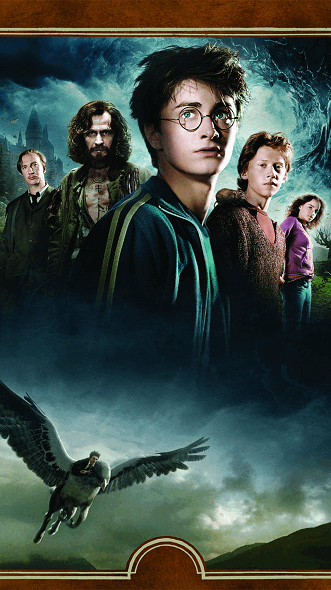
Gender And Social Division
Even though Rowling's portrayal of women in Harry Potter is multifaceted and varied, it follows patriarchal stereotypes. In novels, gender differences are allegedly nonexistent because Hogwarts is a co-ed institution and because women hold positions of power and influence in the wizarding community. The typecasting of female characters and the broader portrayal of traditional gender norms are hidden by this environment. Mainly, Hermione Granger develops into a dynamic, autonomous figure crucial to the heroes' fight against evil. Even strong female characters like Hermione and Minerva McGonagall, who both possess considerable talent, are cast in secondary roles, raising questions about Hermione's suitability as a role model for feminists. In domestic situations, girls and women are usually shown as sensitive, defined by looks, and denied autonomy.
Scholars and reviewers have disagreed over the social structures in Rowling's fantasy universe. Voldemort and his supporters, who serve as Harry Potter's primary opponents, are blood purists who consider "muggles," or people who are not wizards, inferior beings. They are shown to be openly wicked in their view of racial diversity. Many academics believe the show cannot wholly reject racial prejudice since it still portrays wizards as inherently superior to muggles. According to Blake and Zipes, numerous instances of wizardly dominance are displayed as "natural and comfortable." Gupta claims that rather than directly illustrating equality, Harry Potter shows superior races as having a genuine need to be tolerant and charitable toward inferior races.
There are similar arguments against Rowling's portrayals of magical non-humans. In their discussions of the slavery of house elves in Harry Potter, academics like Brycchan Carey have commended the abolitionist sentiments of the novels, holding Hermione's Society for the Promotion of Elfish Welfare up as an example of young readers becoming politically engaged. Farah Mendlesohn and other reviewers believe Hermione's advocacy on their side to be naive since the house elves are shown as content in their slavery and as pleased in their slavery, respectively. According to Pharr, Rowling left the house elves' destiny open-ended, who also claims that the series' house elves are a discordant element. After The Deathly Hallows, the elves are still cheerfully enslaved. In a broader sense, Voldemort's defeat has had little impact on the servitude of magical non-humans. As a result, analysts contend that the show's message is fundamentally conservative and sees no justification for changing societal systems rather than focusing solely on those in positions of authority.
Religious Reactions
Harry Potter has been the target of efforts to outlaw it worldwide, particularly in the Bible Belt of the United States. In the first three years of its release, the series appeared on the American Library Association's list of books that were the most questioned. Parents in various US cities started demonstrations in the years that followed against it being taught in schools. It has been argued by certain Christian critics, notably evangelical Christians, that the novels encourage witchcraft and are harmful to children. An identical argument has been made against the film versions.
Both claims—that Harry Potter is a pagan book and that it inspires kids to defy authority—have been significant targets of controversy. The former stems mainly from Harry's decision to abandon his adoptive parents, the Dursleys. According to novelist and academic Amanda Cockrell, the success of Harry Potter and current interest in fiction and the supernatural among Christian conservatives account for the series' extraordinary resistance. The program was prohibited from private schools in the United Arab Emirates due to claims made by some Shia and Sunni Muslim organizations that it had demonic undertones.
A prominent religious contingent supports the Harry Potter novels, arguing that the series upholds Christian principles or that the Bible allows the kinds of the magic depicted in the books. Christian interpretations of the series contend that it supports the principles of kinship, fidelity, bravery, love, and the desire for power. After the last book was released, Rowling acknowledged that she had purposefully included Christian elements, particularly the notion that love could have the ability to defeat death. Farmer argues that it is a grave misunderstanding to assume that Harry Potter encourages witchcraft. According to the academic Em McAvan, evangelical objections to Harry Potter are merely focused on the fact that the novels include magic; they make no effort to comprehend the moral lessons presented in the books.
Legacy
Crossover fiction—books for children with an adult audience—has experienced a rebirth in popularity, largely thanks to Rowling's Harry Potter series. The use of overlaps in American and British novels was common in the 19th century, but it was less popular and less common in the 20th. The magic style is linked to the post-Harry Potter overlap phenomenon. In the ensuing decade, dismal, practical themes gained popularity as fantasy consumers and authors shifted their attention to adult literature.
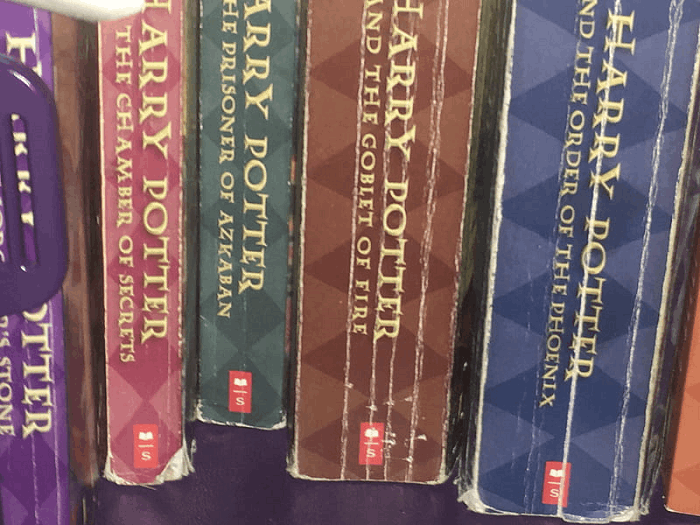
In 1997, Harry Potter's box office success turned this trend around. Its expansion rate was unprecedented in the children's industry; within four years, it controlled 28% of the tax receipts in that sector. Fantasy became a major category as children's literature's cultural standing increased. Children's fantasy books from the past, including the Chrestomanci series by Diana Wynne Jones and the Young Wizards books by Diane Duane, were reissued and became more well-known. Some authors even launched new careers as a result. Many Harry Potter copycats and rebellious reactions were increasingly popular in the following years.
Enid Blyton, who similarly authored in simple language about communities of youngsters and for a long time dominated the British children's market, has been linked to Rowling. She has also been referred to as Roald Dahl's heir. According to some reviewers, the emergence of Harry Potter and the achievement of Philip Pullman's His Dark Materials are examples of a larger movement in readers' reading preferences: away from literary fiction and toward narrative and adventure.
The success of Harry Potter inspired its producers to create complex releases and gave rise to a literary afterlife among followers and forgers. When Prisoner of Azkaban was released on July 8, 1999, at 3:45 p.m., its producer coordinated book sales worldwide, instituted security measures to prevent early purchasing and demanded that bookstores agree not to sell copies before the scheduled hour. A broad community of readers and authors has emerged due to the series' fan fiction, which has become increasingly popular as the internet has grown. Although Rowling has endorsed fan writing, her claims about some characters, such as the possibility of Harry and Hermione becoming a couple and the homosexuality of Dumbledore, have strained her connection with readers. Scholars claim that this demonstrates how contemporary readers have an emotional connection to the work that is independent of the author's purpose and even, at times, opposes it.
Legal Disputes
In disputes claiming copyright violations in the 1990s and 2000s, Rowling served as both a plaintiff and a defendant. Harry Potter was allegedly based on tales Nancy Stouffer wrote in 1984, according to the 1999 lawsuit she filed against Rowling. September 2002 saw Rowling's victory. According to Richard Posner, Stouffer's lawsuit was seriously faulty, and the court fined her $50,000 after concluding that she had "fabricated and changed papers."
Rowling has taken legal action in several nations against publishers and authors of Harry Potter clones with the assistance of her literary agency and Warner Bros. The selling of Rowling's novels or publishing reviews before their scheduled releases were prohibited by several injunctions that she and her publishers acquired in the middle of the 2000s.
After Rowling sold the movie rights to Warner Bros. in 2001, the company started attempting to shut down Harry Potter fan pages unless it could establish that they were created for harmless reasons by "genuine" fans. Rowling began legal action against Warner Bros. in 2007 to stop the publishing of a book based on material from a fan site named The Harry Potter Lexicon. Even though the court determined that Lexicon was neither a permissible use of Rowling's work nor a duplicate work, this did not preclude the book from being released in another format. 2009 saw the release of Lexicon.
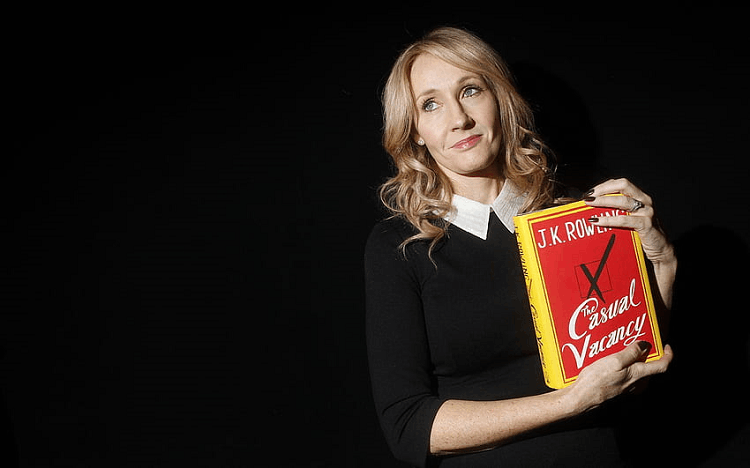
Philantropy
Rowling became, in the words of Smith, "empowered... to speak up and be counted on topics that were significant to her" after becoming aware of the luck that had brought her fame and money and wanting to utilize her public profile to assist others despite her worries about visibility and the press. The Volant Charitable Trust, which Rowling named after her mother, was founded in 2000 when she was still working on the Harry Potter books.
Since 2013, Lumos has worked with an orphanage west of Kyiv to promote changes to how children are cared for in Ukrainian orphanages. Following the Russian invasion of Ukraine in February 2022, Rowling said that she would personally match up to £1 million in contributions given to a Lumos urgent fund.
Rowling has contributed to organizations that help the medical field. When she contributed $10 million to establish the University of Edinburgh's multiple sclerosis research center in 2010, she also named another campus after her mother. In 2019, Rowling donated a further gift of £15.3 million to the center. She recited from Peter Pan as part of a dedication to the Great Ormond Street Hospital for Children during the 2012 Summer Olympics inauguration ceremony, joined by an enormous Lord Voldemort figure. She used the proceeds from "The Ickabog" to contribute six-figure sums to Khalsa Aid and the British Asian Trust in favor of COVID-19 assistance.
Several Harry Potter-related books have been sold to benefit charities. 2001 releases Quidditch Through the Ages and Fantastic Beasts and Where to Find Them donated their earnings to Comic Relief. Amazon's $1.95 million acquisition broke children's books and current literature sales records. After publishing a book, Rowling gave almost £19 million of the revenues to Lumos in 2013. To raise money for Dyslexia Action and English PEN, Rowling and 12 other authors created a collection of short stories in 2008. An 800-word prelude to Harry Potter was Rowling's effort.
Rowling gave profits to ABF, The Soldiers' Charity, once it became known that she wrote The Cuckoo's Calling, which increased sales at the formerly named Army Benevolent Fund.
Views
Before the popularity of author websites, Rowling was a frequent internet user. She has occasionally used Twitter without hesitation to connect with her Harry Potter supporters and admirers. She frequently uses humor and sarcasm in her tweets to express her political views, which occasionally causes controversy.
Politics
Rowling gave the Labour Party a $1 million donation in 2008, supported Gordon Brown as prime minister over David Cameron, a Conservative candidate, and praised Labour's anti-poverty initiatives.
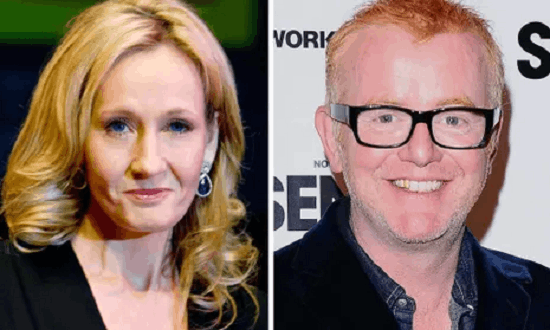
She responded that "it is unfortunate that Clinton and Obama have become competitors because both are exceptional" when questioned about the 2008 US presidential race. Rowling opposed Prime Minister David Cameron's proposal to provide married people with an annual tax benefit in her "Single Mother's Manifesto," published in The Times in 2010. She felt that the Conservative Party had neglected to consider the interests of single parents when making that proposition and that it was discriminatory.
Rowling gave £1 million to the Better Together anti-independence movement in 2014. She condemned the Scottish independence referendum because she was worried about the economic effects. In the 2016 United Kingdom vote on EU membership, Rowling advocated for the UK to remain in the organization. She referred to herself as an internationalist and described herself as "the mongrel product of this European continent," expressing worry that "racists and bigots" were in charge of some Leave campaign activities.
Although she disagreed with Benjamin Netanyahu, she thought that denying Israelis their common culture would not cause him to fall from power. A letter supporting cultural exchange with Israel was signed by Rowling and 150 other people in 2015 and was published in The Guardian.
Press
Rowling signed a statement supporting cultural exchange with Israel in 2015, published in The Guardian.
Rowling struggles to get along with the media and has made attempts to control the kind of attention she gets. In 2003, she referred to herself as having "too thin skin." She had engaged in more than 50 actions targeting the press as of 2011. Having taken the British tabloid Daily Mail to court for libel on her period as a single mother in 2014, Rowling despises the publication.
In 2011, Rowling was identified as a "key participant" in the Leveson Inquiry, a probe of the British press. Rowling responded to Cameron's choice not to implement all of the inquiry's findings in 2012 by writing an opinion piece for The Guardian. She co-signed a 2014 commitment protecting "the press from political influence while still affording important protection to the weak," together with other British celebrities, to reiterate her position on "Hacked Off," a movement favoring the self-regulation of the press.
Transgender People
Concerns have been raised about Rowling's opinions on sex and gender, and her answers to modifications suggested to UK gender recognition legislation. Her comments have sparked arguments about academic freedom, freedom of speech, and cancel culture, and they have caused some feminists to disagree with one another. They have also led to the promotion of transgender people in the literary, artistic, and cultural communities.
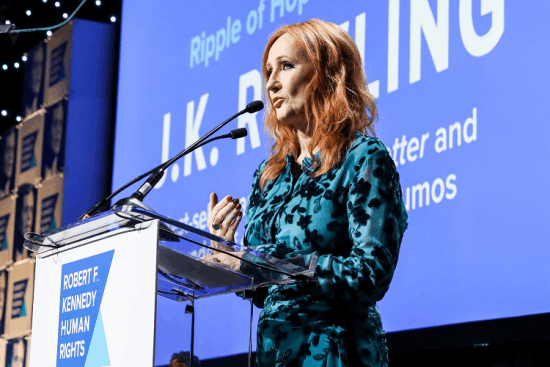
Rowling tweeted in December 2019 that transgender people should live their lives as they wish in "peace and security," but asked why women are "forced out of their professions for asserting that sex is real." In a further contentious tweet in June 2020, Rowling criticized an article for using the term "those who menstruate" and said that if "sex isn't real," women's rights and "lived reality" will be "erased."
GLAAD referred to Rowling's remarks as "cruel" and "inaccurate," and prominent Wizarding World performers and LGBT organizations denounced them. In response, Rowling published an essay on her website discussing how her experiences as a victim of domestic violence and sexual assault had shaped her opinions on women's rights. She acknowledged that most transgender people were "vulnerable" and "needed protection."
TERF (trans-exclusionary radical feminist) has been used to refer to Rowling in reply to her views on Twitter, which have been criticized as transphobic. She disagrees with these characterizations. Rowling's ideas have drawn criticism from organizations including Mermaids, Stonewall, and the Human Rights Campaign, as well as Harry Potter fansites MuggleNet and The Leaky Cauldron. Rowling withdrew the Ripple of Hope Award that the Robert F. Kennedy Human Rights Organization had awarded her because Kerry Kennedy expressed "deep dissatisfaction" with her beliefs. As Rowling's opinions on the legal standing of transgender persons came under fire, she got abuses and death threats, and the conversation spread beyond the Twitter community. She has received support from feminists and several entertainers. "Hate speech intended towards her" was criticized by representatives of the artist's community.
Awards And Honors
Harry Potter by J.K. Rowling received prizes for science fiction and fantasy, general writing, and children's literature. The first two volumes won the Children's Book of the Year award. The third book, Prisoner of Azkaban, was up for the Whitbread Book of the Year award for adults, where it was up against Beowulf's translation by Nobel Prize winner Seamus Heaney. The Rowling Children's Prize, worth just half as much in cash, was given in its place, and some academics believed this demonstrated a bias against children's literature. Goblet of Fire, her fourth book, earned the Hugo Award from the World Science Fiction Convention, while Half-Blood Prince, her sixth book, took home the Book of the Year award from the British Book Awards.
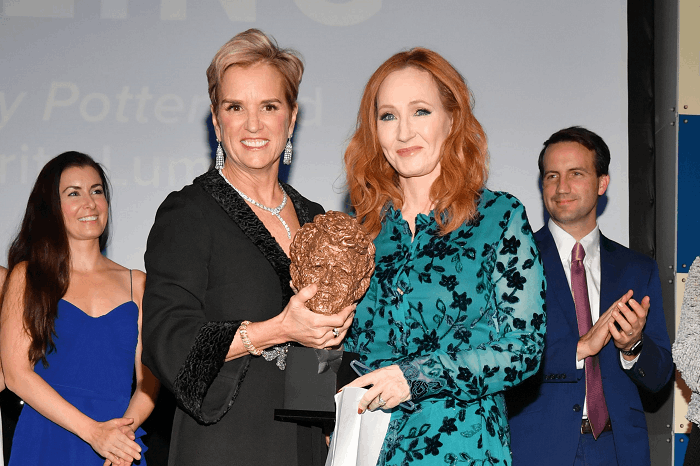
In the 2000 Birthday Honours, Rowling was named an Officer of the Order of the British Empire (OBE) for her contributions to children's literature. For Concord, she was given Spain's Prince of Asturias Award three years later. She was awarded the Outstanding Achievement honor at the 2008 British Book Awards when the Harry Potter series ended. She was awarded the Chevalier de la Légion d'Honneur the following year by Nicolas Sarkozy, the president of France. She received the Order of Companions of Honor (CH) in 2017 for her charitable and literary contributions.
She also received the 2021 British Book Awards and Thriller Award for the fifth book in her Cormoran Strike series and the 2017 Laurence Olivier Award for Best New Play for Harry Potter and the Cursed Child.